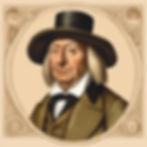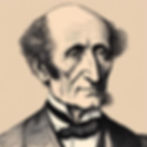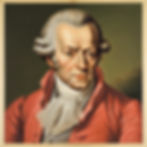Rational reasonings

Follow me on a journey as I explain the doctrines in which past philosophers have based their decisions.
What is Ethics?
Ethics is the essentially how we as humans make decisions in our daily lives: what we base our decisions upon. Ethics is intertwined with the concept of morality which is the judgement of the rightness or wrongness of an action.

What are doctrines of ethics?
Doctrines of ethics are ideas which have been proposed upon which people should base their decisions and actions. These are divided into two main types: Teleological ethics - 'Telos' meaning purpose in ancient Greek, which attempts to justify that the means by the outcome; and Deontological ethics - 'Deon' meaning duty in ancient greek, which is the belief that certain moral actions are obligatory or prohibited regardless of what the outcome is.
Act Utilitarianism

Utilitarianism, a doctrine of teleological ethics, is the idea that one's actions should solely be based upon whether it creates the greatest amount of happiness for the greatest number of people. Act utilitarianism, developed by Jeremy Bentham, judges each action individually and an act utilitarian would try to ensure that their actions generate the greatest amount of happiness for the greatest number of people.
Criticisms of Act Utilitarianism
A criticism to this doctrine is questioning this notion of 'happiness'. As happiness is very difficult to quantify, especially in a split second in daily life, what a person assumes is the greatest amount of happiness in the moment may turn out with further deliberation not to be so. Additionally, each person's idea of what would create the greatest amount of happiness may also be drastically different as it is quantified differently by each person, therefore what a person may judge is a moral action under this doctrine may be immoral to another.
Rule Utilitarianism

Rule utilitarianism, developed by John Stuart Mill, is also a doctrine of teleological ethics and a form of utilitarianism. However this differs from Act Utilitarianism as it depends on a set of rules laid out which were created in order to maximise the amount of happiness for the greatest number of people attempting to minimise the affect of on the spot thinking for a morally correct decision as these rules will have been well thought through ensuring the maximum amount of happiness created.
Criticisms of Rule Utilitarianism
This doctrine also suffers from some of the same criticisms as Act utilitarianism, for example the criticism that different people quantify happiness differently and therefore certain outcomes may be judged to be morally correct through this doctrine by some and immoral by others leading to conflicts in the rules created. Another criticism is the idea of 'rule worship' which argues that individuals following this doctrine may base their decisions irrationally on rules even when ignoring the rules many lead to a greater amount of happiness.
Kantian ethics

Kantian ethics, developed my Emmanuel Kant, is a doctrine of deontological ethics and suggest that humans have the capacity to create moral principles which we should abide by irrespective of the outcome. For example, one can suggest that humans should not murder and therefore we should always not murder in any given situation.
Criticisms of Kantian Ethics
This doctrine also falls victim to 'rule worship' as preciously mentioned that in any situation the rule or moral principle will be followed even if it is irrational to do so as ignoring the rule may lead to a better outcome. An example of how this criticism may apply is in a thought experiment known as the 'Trolley problem': Imagine that an out of control trolley is running down its track headed for five people tied to the ground. On the other track is a single person tied down to the ground as well and you, as the observer, have a lever which you can pull in order to switch the train from the track with the five people to the track with one person. The question is do you switch? Most people would say yes in order to save the five people over the one but Emmanuel Kant would argue that since murder is wrong in principle one should not turn the lever in this situation.



